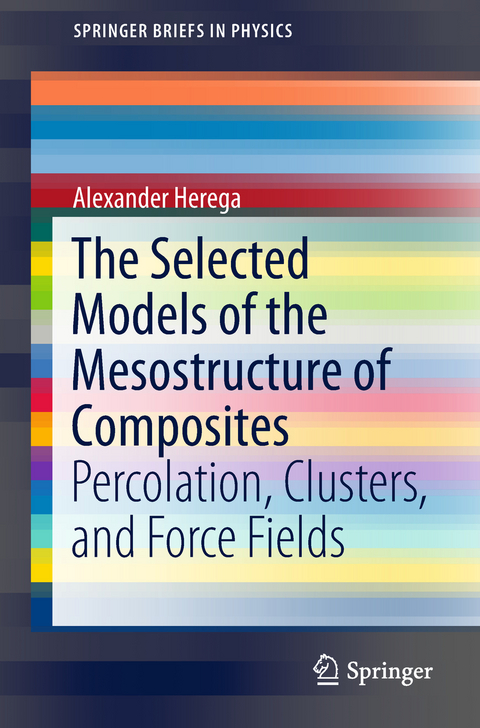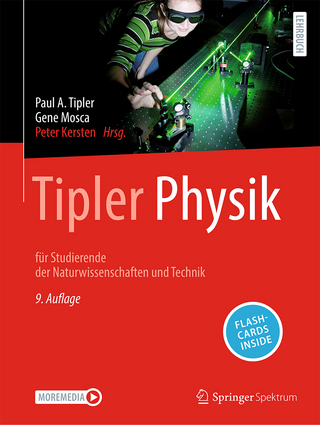
The Selected Models of the Mesostructure of Composites
Springer International Publishing (Verlag)
9783319897035 (ISBN)
This book presents the role of mesostructure on the properties of composite materials. A complex percolation model is developed for the material structure containing percolation clusters of phases and interior boundaries. Modeling of technological cracks and the percolation in the Sierpinski carpet are described. The interaction of mesoscopic interior boundaries of the material, including the fractal nature of interior boundaries, the oscillatory nature of it interaction and also the stochastic model of the interior boundaries' interaction, the genesis, structure, and properties are discussed. One of part of the book introduces the percolation model of the long-range effect which is based on the notion on the multifractal clusters with transforming elements, and the theorem on the field interaction of multifractals is described. In addition small clusters, their characteristic properties and the criterion of stability are presented.
Prof. Alexander Herega is head of the Department of Computer Systems and Full Professor of Department of Physics at Odessa National Academy of Food Technologies. He got the diploma at the Department of Theoretical Physics of I. Mechnikov Odessa State University, PhD and D Sc. degrees at Odessa National Academy of Food Technologies. He is a member of the American Physical Society (APS), American Chemical Society (ACS), and Ukrainian Physical Society. He belongs to the editorial board of the International Journal of Composite Materials, International Journal of Modern Physics and Application. He has more 100 publications and three text-books "Simulation and statistical modeling", "Constructive fractals in set theory", and "Course of physics". He teaches General Physics, Computer Science, Information Technologies and System Science. His areas of research are: Materials Science, Percolation Theory, Fractal Clusters, Dynamical Systems, Deterministic Chaos, Computer Simulation, and Modeling of Physical Phenomenon. Olga Titlova obtained her Master’s degree at Odessa National Academy of Food Technologies (ONAFT), Faculty of Automation and Computer Systems in 2008. In 2012 she defended her PhD thesis and became the deputy dean of the Faculty of Automation, Electromechanics, Computer Systems and Control. From 2012 to 2015 she completed a traineeship at the University of Bordeaux, France. In 2014 she became an associate professor at the Department of Technological Processes’ Automation and Robotic Systems. In 2015–2017 she was the head of the Department of International Relations and Academic Mobility. She is the executive editor of the journal “Automation of Technological and Business-Processes”.She has published 50 papers. The main topics of her research are the development of energy-saving automatic control systems, improving the efficiency of the production process of artificial cold in absorption refrigerating devices, energy-efficiency technologies, renewable and alternative energy sources, and automated process control.
The Complex Percolation Model of Structure of Materials.- The Percolation Model of the Long-Range Effect.- Interaction of Mesoscopic Interior Boundaries of Materials.- The Small Clusters: Genesis, Structure and Features.- Conclusion.
| Erscheinungsdatum | 24.06.2018 |
|---|---|
| Reihe/Serie | SpringerBriefs in Physics |
| Zusatzinfo | IX, 107 p. 35 illus. |
| Verlagsort | Cham |
| Sprache | englisch |
| Original-Titel | Selected models of the mesostructure of composites. Percolation, clusters, power fields |
| Maße | 155 x 235 mm |
| Gewicht | 196 g |
| Themenwelt | Naturwissenschaften ► Physik / Astronomie ► Allgemeines / Lexika |
| Naturwissenschaften ► Physik / Astronomie ► Theoretische Physik | |
| Schlagworte | Clusters with Transforming Element • Computer Simulation of Matrial Structure • Field Interaction of Multifractals • Genesis of Structure and Properties • Interaction of Interior Boundaries • Long-Range Effect in Disordered Materials • Percolation Cluster of Phases of Material • Power Field of Multiscale Networks • Relative Ordering Disordered Homogeneous Materials • Relative Ordering of Structure Heterogeneous Mater • Relative Ordering of Structure Heterogeneous Materials • Stability of Mesoscopic Clusters |
| ISBN-13 | 9783319897035 / 9783319897035 |
| Zustand | Neuware |
| Informationen gemäß Produktsicherheitsverordnung (GPSR) | |
| Haben Sie eine Frage zum Produkt? |
aus dem Bereich


